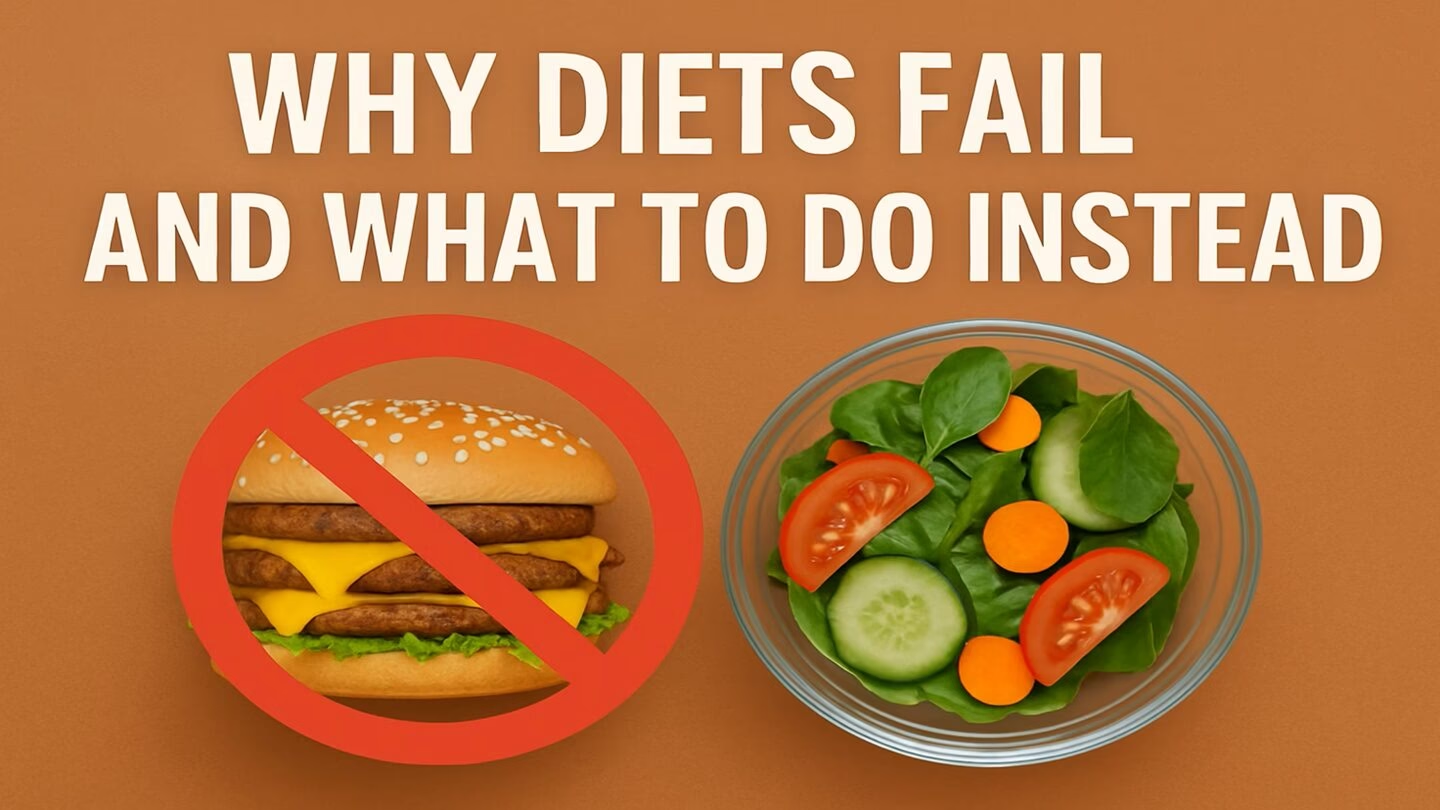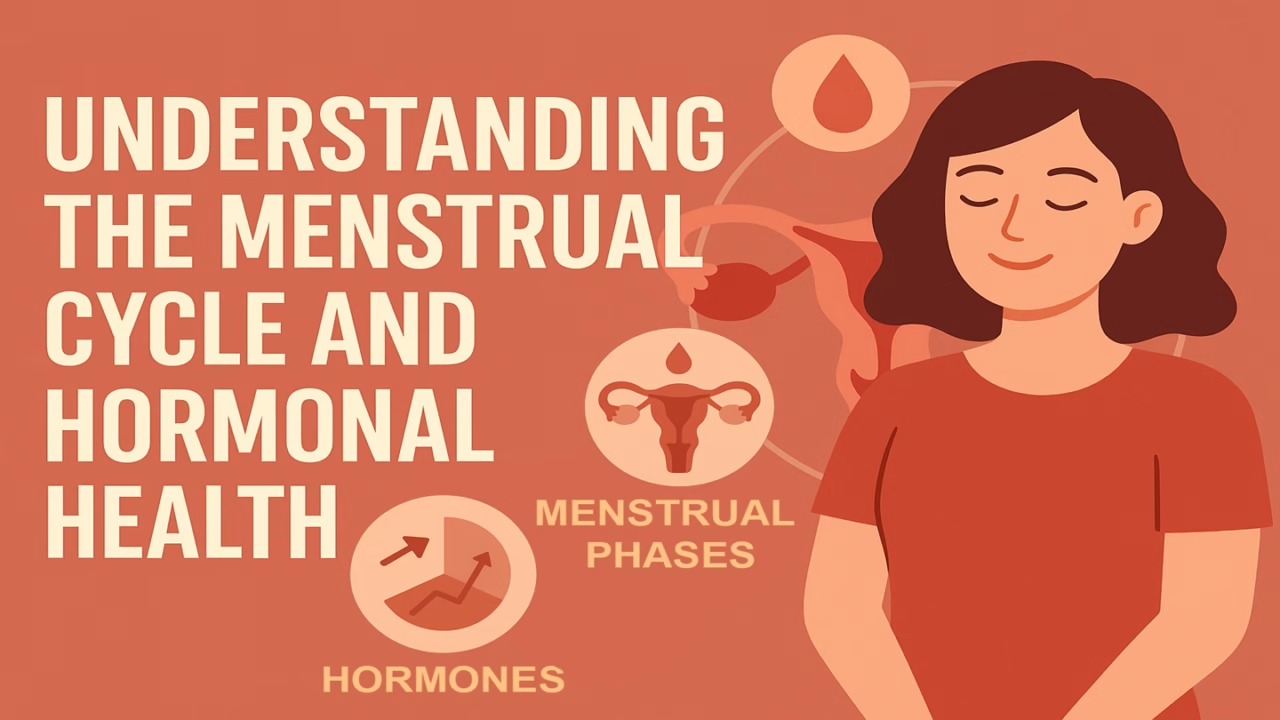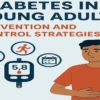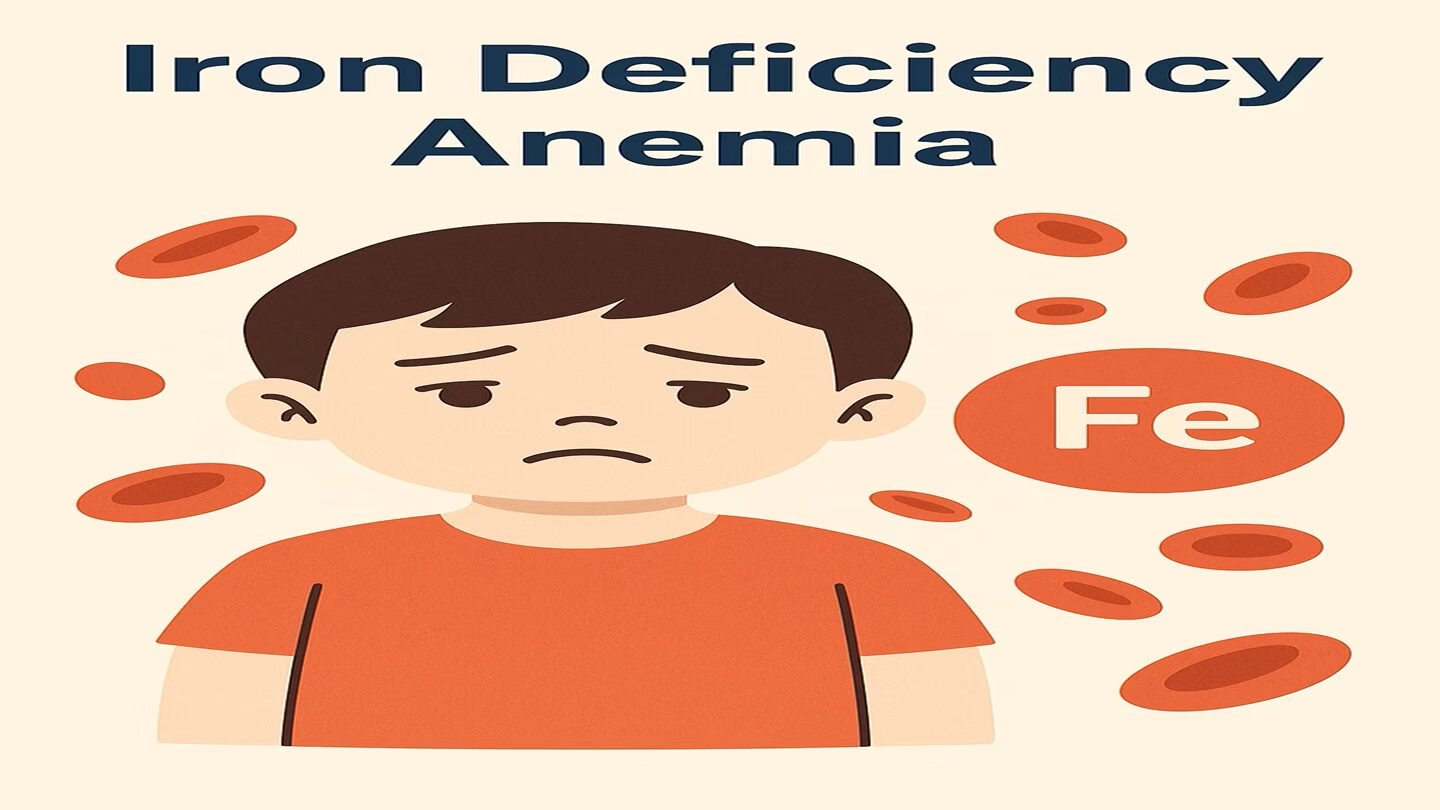Despite the billions of dollars spent annually on the weight-loss industry, most diets fail—and often leave people feeling worse than when they started. If you’ve ever lost weight on a diet only to gain it back (and then some), you’re not alone. In fact, studies show that up to 95% of diets fail in the long term. So, why is this happening—and what should we be doing instead?
This article explores the real reasons diets fail, the psychological and physiological toll they take, and sustainable strategies for lifelong health and weight management.
🚫 The Real Reasons Diets Fail
1. Unrealistic Restrictions
Most diets rely on cutting out entire food groups (like carbs or fats) or drastically slashing calories. While this may work in the short term, it’s unsustainable.
- Example: The keto diet eliminates most carbs, which can be difficult to maintain long-term for pasta or bread lovers.
- Result: People feel deprived, which leads to bingeing or quitting altogether.
“The more you restrict, the more you crave.” – National Eating Disorders Association
2. Willpower Isn’t Infinite
Diets rely heavily on willpower, assuming you’ll always be able to say no to cravings. But willpower is a finite resource.
- Science says: Self-control depletes with stress, fatigue, and even decision-making throughout the day.
- Consequently: You’re more likely to make unhealthy choices when tired or emotional.
3. They Ignore Individual Differences
Diets are “one-size-fits-all,” but metabolisms, genetics, and lifestyles vary from person to person.
- Some people thrive on low-carb plans.
- Others may need more carbs for energy, especially athletes or menstruating women.
🧬 Research from NIH shows genetic factors influence how your body responds to different types of food and exercise.
4. Metabolic Slowdown
Severe calorie restriction can lead to adaptive thermogenesis, where your body slows its metabolism to conserve energy.
- Result: You burn fewer calories and plateau faster.
- Worse: When you return to normal eating, weight often rebounds (sometimes higher than before).
5. Short-Term Mindset
Most diets are marketed as quick fixes—“Lose 10 pounds in 10 days!” But sustainable weight loss takes time.
- Losing weight rapidly often leads to muscle loss, not just fat.
- Slow weight loss (1–2 pounds per week) is more likely to result in long-term success.
6. They Don’t Address Emotional Eating
Many people eat in response to emotions—boredom, stress, sadness—not hunger.
- Diets don’t teach how to cope with emotions.
- They often trigger guilt and shame when you “slip up,” which can lead to binge eating.
✅ What to Do Instead
1. Adopt a Long-Term Lifestyle Approach
Replace dieting with a sustainable lifestyle focused on health, not just weight.
- Aim for: Balanced meals, whole foods, and joyful movement.
- Focus on: How you feel—energy, mood, sleep—not just numbers on a scale.
🧠 A study in Obesity Reviews found lifestyle changes lead to better long-term outcomes than traditional dieting.
2. Practice Mindful Eating
Mindful eating helps you recognize true hunger and fullness cues, eat slower, and enjoy food more.
- Turn off screens while eating.
- Pause mid-meal to assess fullness.
- Eat without guilt.
📘 Recommended Read: “Mindful Eating” by Jan Chozen Bays
3. Set Non-Scale Goals
Weight is just one indicator of health. Focus on goals like:
- Walking 10,000 steps/day 🚶♀️
- Sleeping 7–8 hours/night 💤
- Cooking more meals at home 🍳
These habits improve overall well-being and can lead to natural weight loss.
4. Ditch “Good” and “Bad” Food Labels
Food isn’t moral. Labelling foods as “bad” creates guilt and rebellion.
- Instead: Practice 80/20 eating—eat nourishing foods 80% of the time, and enjoy treats guilt-free 20%.
🍫 Yes, you can eat chocolate and be healthy.
5. Get Support
Changing lifelong habits is hard—you don’t have to do it alone.
- Work with a registered dietitian or health coach.
- Join supportive communities focused on health, not just weight loss.
🧑⚕️ A 2020 Harvard Health review emphasizes the importance of support systems in sustainable weight management.
6. Move Your Body for Joy, Not Punishment
Stop using exercise to “burn off” calories. Instead, move in ways you enjoy:
- Dance 💃
- Hike 🏞️
- Yoga 🧘
- Strength training 🏋️♂️
Movement boosts mental health, metabolism, and confidence—even without weight loss.
7. Be Patient and Kind to Yourself
Change takes time. You may slip, but you’re still moving forward.
- Progress isn’t linear.
- Celebrate small wins—like saying no to binge eating, or drinking more water today.
“Consistency beats perfection.” – James Clear, Atomic Habits
🔄 Recap: Why Diets Fail vs What Works
| ❌ Diets Fail Because… | ✅ What to Do Instead |
|---|---|
| Too restrictive | Practice balance (80/20) |
| Focus on weight only | Focus on energy, mood, habits |
| Short-term mindset | Build lifelong habits |
| Ignore emotional eating | Learn coping tools |
| Rely on willpower | Design supportive environments |
| Don’t fit your body | Personalize your approach |
📚 References
- National Institutes of Health (NIH): Genetic Influence on Diet Response
- Obesity Reviews (2021): Long-Term Success of Lifestyle Interventions
- Harvard Health Publishing: Why Diets Don’t Work
- National Eating Disorders Association (NEDA): Dangers of Dieting
- American Psychological Association: Willpower and Decision Fatigue
🧭 Final Thoughts
Diets are often marketed as a solution, but they can be part of the problem. The truth is: there is no one perfect diet, but there is a perfect approach—for you. Instead of chasing fads or blaming yourself for “lack of willpower,” focus on creating healthy, flexible habits that make you feel your best.
When you ditch the diet and listen to your body, lasting change becomes possible—and far more enjoyable.
ABOUT THE AUTHOR
Dr. Nora West is a highly skilled MBBS doctor with a special interest in women’s health and patient education. She is dedicated to providing compassionate care and believes in building strong doctor–patient relationships based on trust and understanding. Dr. Nora focuses on empowering her patients with the knowledge they need to make informed decisions about their health. She is particularly passionate about preventive medicine, nutrition, and lifestyle interventions that can significantly improve quality of life. Known for her warmth and professionalism, Dr. Nora combines evidence-based medicine with a personalized approach, ensuring every patient feels supported on their journey to better health.


















Add comment